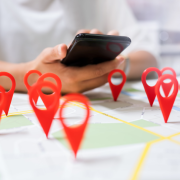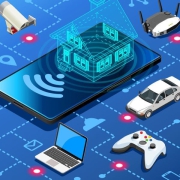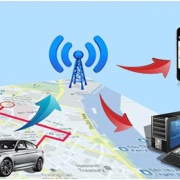The Impact of Car Tracker on Law Enforcement Actions
Car trackers or GPS (Global Tracking System) trackers have become an indispensable part of modern life. This technology is mainly used for navigation, but it can also be used to track and track cars. Over the years, car trackers have had a significant impact on law enforcement agencies in various ways, especially in addressing crime, preventing crime, and public safety. In this article, I will explore the impact of car trackers on law enforcement.
Addressing Crime Issues
Facts have proven that car trackers are an important tool for solving crime problems. This technology enables law enforcement agencies to track and track vehicles suspected of participating in criminal activities. Car trackers can be used to monitor the movements of suspect vehicles, collect evidence, and make arrests. For example, a GPS tracker can be installed on the suspect’s vehicle to monitor their actions and collect their whereabouts information. With this information, law enforcement personnel can plan and execute actions to arrest suspects and collect evidence against them.
In a high-profile case, car trackers played an important role in uncovering a murder case in New York City. In 2013, a 22-year-old man was shot dead in Queens. By using GPS tracking, detectives can track the vehicles of suspects near the crime scene, leading to their arrest and ultimately being convicted of first-degree murder.
Car trackers are also very useful in tracking stolen vehicles. Law enforcement agencies can track stolen vehicles and quickly recover them. According to data from the National Insurance Crime
Bureau (NICB), vehicles equipped with GPS trackers are 90% more likely to be retrieved when stolen. This technology is particularly useful for rental companies, as they can remotely track and disable rental cars that have not been returned on time.
Crime prevention
The use of car trackers has had a significant impact on crime prevention. This technology can be used to prevent criminals from committing crimes, especially in the field of vehicle theft. Knowing that the vehicle is equipped with a GPS tracker can serve as a deterrent to potential thieves, they know they may be caught and are less willing to steal the car.
In addition to preventing vehicle theft, car trackers can also be used to prevent other crimes. For example, companies operating fleets can use GPS tracking to monitor driver behavior and ensure that their vehicles are not used for unauthorized purposes. This can help prevent employee theft or fraud, and ensure that the company’s assets are effectively utilized.
Public safety
Car trackers can also have a significant impact on public safety. Law enforcement agencies can use GPS tracking to monitor the actions of criminals released from prison. This information can be used to ensure that criminals comply with their release conditions, including staying away from certain areas or populations.
GPS tracking can also be used to monitor the actions of sexual offenders. In some states, sex offenders are required to wear GPS devices, allowing law enforcement agencies to track their actions. This enables law enforcement personnel to monitor the actions of sex offenders and ensure that they have not violated parole regulations or committed new crimes.
In summary, car trackers have had a significant impact on law enforcement in various ways. This technology is mainly used for navigation, but it can also be used to track and track cars. Facts have proven that car trackers are an important tool for solving crime, preventing crime, and ensuring public safety. They enable law enforcement agencies to track and track vehicles suspected of involvement in criminal activities, monitor the actions of suspects, and prevent vehicle theft. Car trackers can also be used to prevent criminals from committing crimes and ensure that they comply with their release conditions. With the continuous development of technology, car trackers may become more important in combating crime and ensuring public safety.










Leave a Reply
Want to join the discussion?Feel free to contribute!